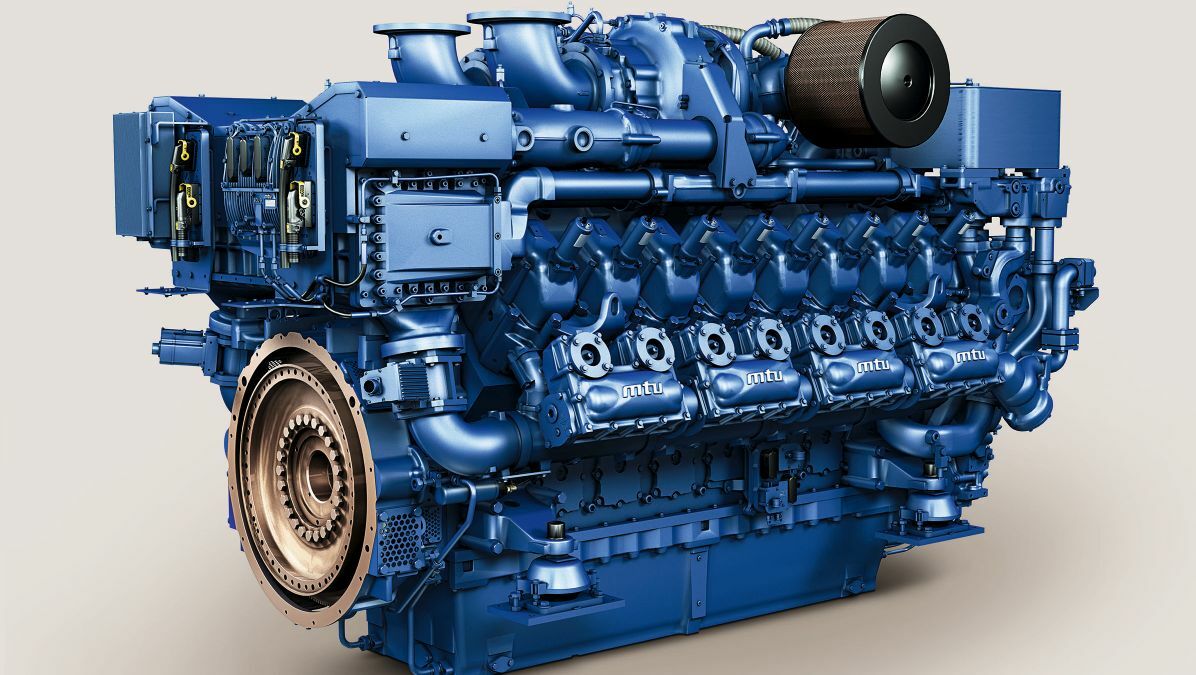Why Businesses Prefer Engines For Africa for Their Fleet
Discover a Wide Variety of Engines for every single Vehicle and Function
The automobile landscape is progressively complex, with a diverse selection of engine kinds made to fulfill particular efficiency and performance demands across numerous car classifications. Furthermore, heavy-duty engines serve the needs of job automobiles, while eco-friendly alternatives are getting grip in the pursuit of lasting transportation.
Kinds Of Automotive Engines
Automotive engines can be categorized into numerous unique kinds, each made to satisfy details efficiency and efficiency demands. One of the most typical categories include internal combustion engines, electric engines, and crossbreed systems.

Electric engines, on the various other hand, operate electric power stored in batteries, supplying immediate torque and zero emissions. These engines are becoming progressively prominent due to developments in battery technology and the growing focus on sustainability.
Hybrid systems integrate both internal combustion and electric engines, enabling vehicles to maximize gas efficiency and lower exhausts by perfectly switching in between source of power. Each engine kind offers its benefits and drawbacks, affecting elements such as lorry design, planned use, and market demand. Recognizing these distinctions is critical for makers and consumers alike when picking the appropriate engine for their certain demands.
Performance Engines for Sports Cars
Performance engines for cars are specifically crafted to provide improved rate, power, and dexterity, setting them apart from common automobile engines. These engines usually use sophisticated innovations such as turbocharging, supercharging, and variable shutoff timing to make the most of performance and responsiveness.
Commonly, performance engines are created with greater compression ratios, which enable higher power removal from fuel. This results in impressive horse power and torque numbers, making it possible for fast acceleration and greater top rates. The light-weight products utilized in these engines, such as aluminum and carbon fiber, add to decreased overall lorry weight, improving handling and maneuverability.
Engine configurations like V6, V8, and also hybrid systems prevail in performance sports cars and trucks, each offering unique benefits in terms of power distribution and driving characteristics. The adjusting of these engines is likewise critical; several suppliers enhance the engine administration systems to supply an exhilarating driving experience, usually consisting of sport settings that change throttle response and equipment changes.
Effective Engines for Daily Commuters
In the realm of daily commuting, reliable engines play a vital duty in maximizing gas economy and lessening discharges while giving reputable efficiency. As city populations expand and ecological worries heighten, the need for cars geared up with reliable powertrains has actually surged.
Modern engines created for daily travelers typically incorporate technologies such as turbocharging, straight fuel injection, and hybrid systems. Turbocharging boosts engine efficiency by requiring even more air into the combustion chamber, permitting smaller sized, lighter engines that do not endanger power outcome. Straight gas injection enhances fuel atomization, bring about far better burning and boosted effectiveness.
Hybrid engines, combining interior burning with electrical power, additional augment gas economic climate, particularly in stop-and-go website traffic, where standard engines can endure from ineffectiveness. Electric electric motors assist during velocity and can operate individually at low rates, decreasing overall fuel intake.
Moreover, developments in engine management systems and light-weight products add dramatically to effective engine design. By concentrating on performance, longevity, and environmental sustainability, suppliers remain to supply engines that not only fulfill the needs of day-to-day commuting yet additionally align with worldwide efforts to decrease carbon footprints.
Heavy-Duty Engines for Work Autos
Sturdy engines for job lorries are consistently crafted to deliver remarkable torque and integrity under requiring problems. These engines are made to execute in settings where typical engines might falter, such as building and construction websites, logging operations, and agricultural settings. The primary emphasis of durable engines is their capacity to produce high levels of power while preserving durability over expanded periods of operation.
Normally, heavy-duty engines use advanced products and robust construction techniques to withstand the roughness of heavy work. Features such as reinforced cyndrical tube blocks, boosted air conditioning systems, and progressed fuel injection innovations add to their efficiency. These engines usually operate at lower RPMs, which assists to enhance gas effectiveness while supplying the required power for towing and carrying.
In addition to mechanical toughness, sturdy engines are usually geared up with innovative digital control units (ECUs) that handle performance, discharges, and diagnostics. This assimilation permits better tracking and upkeep, making certain that job vehicles continue to be reliable and functional.
Ultimately, durable engines are a vital part in the efficiency of various sectors, providing the needed power and reliability to tackle the hardest of jobs.
Eco-Friendly Engine Options
The expanding focus on sustainability has caused the growth of environmentally friendly engine options that prioritize reduced discharges and boosted gas efficiency. These engines are developed to lessen the environmental effect of vehicles while still providing the performance and dependability expected by my explanation customers.
Among the most noteworthy eco-friendly alternatives are electric and hybrid engines. Hybrid engines combine conventional internal burning engines with electrical propulsion, enabling decreased gas consumption and lower greenhouse gas emissions. Electric engines, on the other hand, run totally on battery power, generating zero tailpipe discharges and adding to cleaner air high quality.
One more encouraging growth is the innovation of biofuel engines, which utilize eco-friendly sources, such as plant products, to power lorries (Engines For Africa). By utilizing biofuels, Learn More these engines can lower reliance on nonrenewable fuel sources and reduced total carbon impacts

As the vehicle market advances, green engine alternatives will certainly play an important role in driving the change in the direction of more sustainable transport services.
Final Thought
From high-performance engines that improve sports automobile capabilities to reliable versions prioritizing gas economy for day-to-day travelers, each kind offers a particular function. Sturdy engines cater to durable work lorries, while environment-friendly alternatives, such as electrical and biofuel engines, advertise sustainable transportation.
